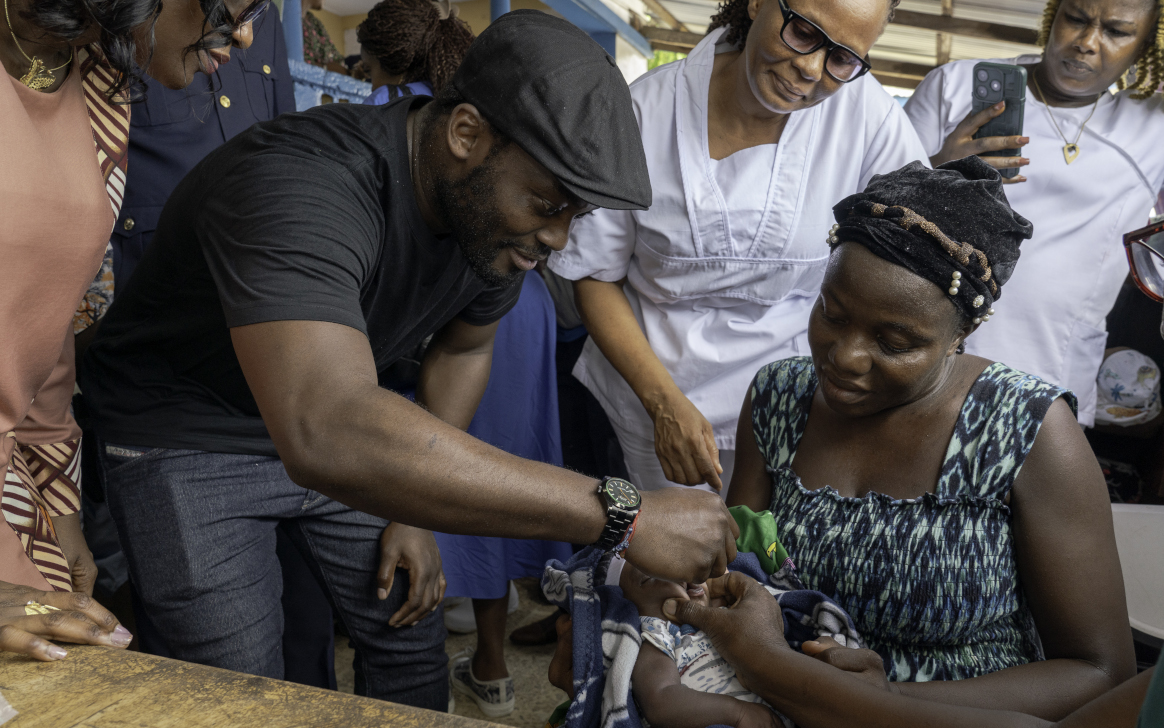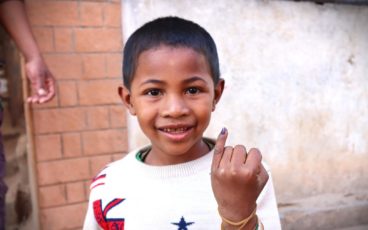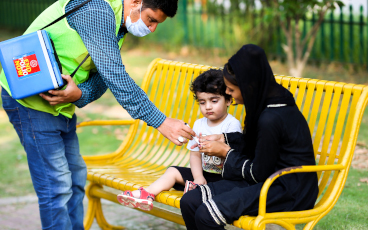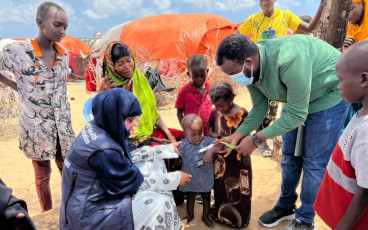First wild poliovirus cases in Nigeria since July 2014
Rapid multi-country response planned, as Nigeria declares national public health emergency
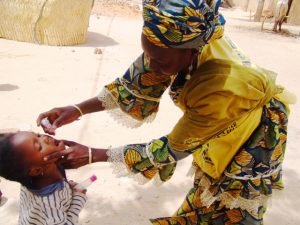
Geneva 11 August 2016 – After more than two years without polio in Nigeria, the Government reported today, that two children have been paralyzed by the disease in the northern Borno state.
As an immediate priority, the Government of Nigeria is collaborating with the World Health Organization (WHO) and other partners of the Global Polio Eradication Initiative to respond urgently and prevent more children from being paralyzed. These steps include conducting large-scale immunization campaigns and strengthening surveillance systems that help catch the virus early. These activities are also being strengthened in neighbouring countries. In response to confirmation of these cases, the Government of Nigeria declared this outbreak as a national public health emergency.
Genetic sequencing of the viruses suggests that the new cases are most closely linked to a wild poliovirus strain last detected in Borno in 2011. Low-level transmission of the poliovirus is not unexpected, particularly in areas where it is difficult to reach children with the vaccine. Subnational surveillance gaps persist in some areas of Borno, as well as in areas of neighbouring countries.
“We are confident that with a swift response and strong collaboration with the Nigerian Government, we can soon rid the country of polio once and for all. This is an important reminder that the world cannot afford to be complacent as we are on the brink of polio eradication – we will only be done when the entire world has been certified polio-free,” said Mr Michel Zaffran, Director of polio eradication at WHO Headquarters.
As recently as 2012, Nigeria accounted for more than half of all polio cases worldwide, but the country has made significant strides, recently marking 2 years without a case on 24 July 2016. This progress has been the result of a concerted effort by all levels of government, civil society, religious leaders and tens of thousands of dedicated health workers. Recent steps including increased community involvement and the establishment of Emergency Operations Centers at the national and state level have been pivotal to Nigeria’s capacity to respond to outbreaks.
Full release
GPEI statement
Interview with Michel Zaffran, Director of the GPEI
Nigeria declares polio outbreak as a national public health emergency (18 August 2016)
External Experts Commend the Strong Surveillance Structure for detecting Outbreaks in Nigeria (25 August 2016)
States in the North East intensify preparation for Outbreak Response Campaign (26 August 2016)




